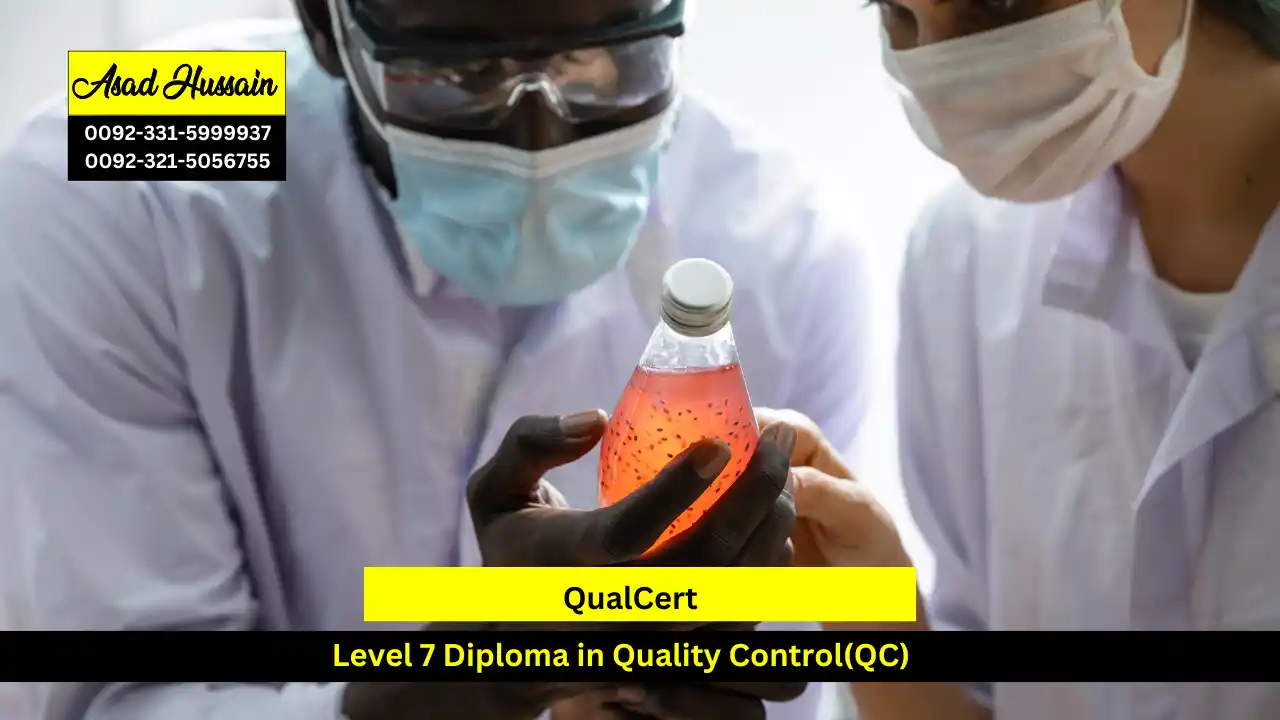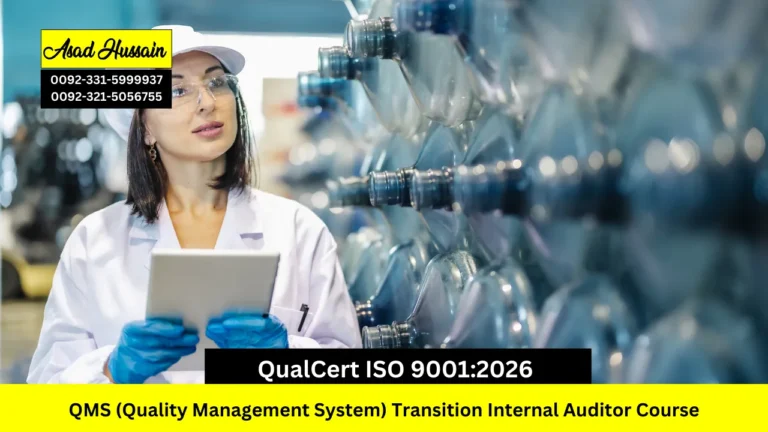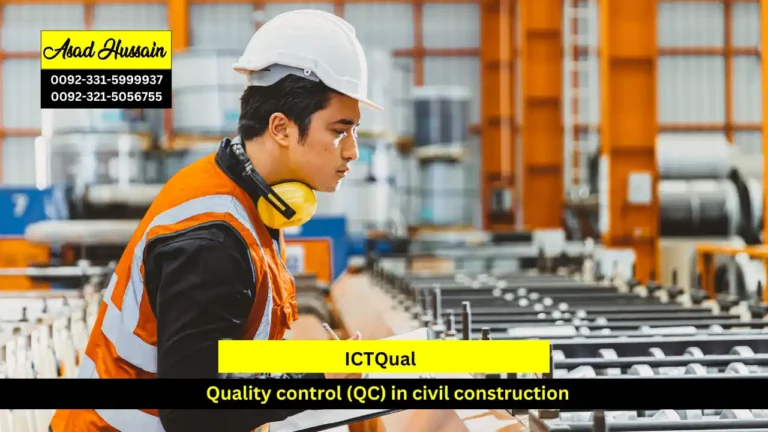In today’s competitive market, maintaining the highest standards of quality is crucial for success. The Level 7 Diploma in Quality Control (QC) is a prestigious qualification designed for professionals aiming to excel in quality management and assurance. This advanced diploma not only enhances your skills but also positions you as a leader in the field of quality control.
The Level 7 Diploma in Quality Control is an advanced certification that delves deep into the complexities of quality management. It is intended for senior professionals who wish to advance their expertise and take on strategic roles within their organizations. This diploma is ideal for those who have a solid foundation in quality control and want to refine their skills in a more comprehensive and strategic context.
The Level 7 Diploma in Quality Control is a prestigious qualification that offers a comprehensive understanding of advanced quality management practices. It is designed for professionals who are serious about advancing their careers and making a significant impact in their organizations. By pursuing this diploma, you are not only enhancing your skills but also positioning yourself as a leader in the field of quality control. If you are ready to take your expertise to the next level and drive excellence in quality management, this diploma is the ideal choice for you.
Program Highlights
Mandatory Units
- Strategic Quality Planning and Management
- Advanced Quality Assurance Techniques
- Regulatory Compliance and Risk Management
- Leadership and Organizational Change
- Innovation in Quality Control
- Supplier Quality Management
- Sustainability and Ethical Practices in Quality Control
- Advanced Project Management for Quality
- Practical Applications and Case Studies
Educational Qualifications
- Bachelor’s Degree or Equivalent: Applicants must hold a bachelor’s degree or an equivalent qualification from a recognized institution. The degree should ideally be in a relevant field such as engineering, quality management, industrial management, or a related discipline.
Work Experience
- Professional Experience: Candidates should have substantial work experience in quality control, quality assurance, or a related field. Typically, applicants are required to have a minimum of 5-7 years of relevant professional experience. This experience should demonstrate a solid understanding of quality management principles, practices, and leadership.
Prerequisite Knowledge
- Foundation in Quality Control and Assurance: Applicants must possess a strong foundation in quality control methodologies, statistical techniques, and quality management systems. This foundational knowledge is essential for engaging with the advanced coursework and assignments.
Language Proficiency
- Proficiency in English: Since the program is conducted in English, applicants must demonstrate proficiency in the language.
Strategic Quality Planning and Management
- Develop and implement strategic quality plans that align with organizational goals and objectives.
- Analyze organizational needs to design effective quality management frameworks.
- Utilize strategic tools and techniques to drive quality improvement and ensure consistency in product and service delivery.
- Evaluate the effectiveness of quality strategies and make data-driven recommendations for enhancement.
Advanced Quality Assurance Techniques
- Master advanced quality assurance methodologies and tools to ensure high standards of product and service quality.
- Apply statistical and analytical techniques to monitor and improve quality control processes.
- Develop and implement advanced quality assurance protocols tailored to specific industry requirements.
- Analyze and address complex quality issues using sophisticated problem-solving techniques.
Regulatory Compliance and Risk Management
- Understand and apply regulatory standards and compliance requirements relevant to quality control across various industries.
- Identify, assess, and manage quality-related risks to ensure regulatory compliance and mitigate potential issues.
- Develop risk management strategies and contingency plans to address regulatory challenges and maintain quality standards.
- Conduct internal audits and inspections to ensure adherence to compliance requirements.
Leadership and Organizational Change
- Develop leadership skills necessary for managing quality control teams and driving organizational change.
- Implement effective change management strategies to support quality improvement initiatives.
- Enhance communication and motivational techniques to lead teams towards achieving high-quality outcomes.
- Address and manage resistance to change within quality control processes and foster a culture of continuous improvement.
Innovation in Quality Control
- Explore and apply innovative approaches and technologies in quality control to enhance efficiency and effectiveness.
- Evaluate emerging trends and tools in quality management and integrate them into existing practices.
- Foster a culture of innovation within the quality control function to drive continuous improvement and competitive advantage.
- Analyze case studies of successful innovation in quality control to identify best practices and strategies.
Supplier Quality Management
- Develop and implement strategies for managing and improving supplier quality to ensure consistent product and service standards.
- Evaluate supplier performance using quality metrics and develop action plans for addressing deficiencies.
- Build strong relationships with suppliers and collaborate on quality improvement initiatives.
- Monitor and assess supplier compliance with quality standards and regulatory requirements.
Sustainability and Ethical Practices in Quality Control
- Integrate sustainability and ethical practices into quality control processes to promote environmental responsibility and social accountability.
- Develop and implement quality control strategies that align with sustainable development goals.
- Evaluate the impact of quality control practices on environmental and ethical considerations.
- Promote ethical decision-making and practices within quality control functions.
Advanced Project Management for Quality
- Apply advanced project management principles and techniques to quality control projects.
- Develop project plans, schedules, and budgets to ensure successful implementation of quality initiatives.
- Utilize project management tools to monitor progress, manage risks, and ensure quality deliverables.
- Lead cross-functional teams in executing quality control projects and achieving project goals.
Practical Applications and Case Studies
- Analyze real-world case studies to understand practical applications of quality control theories and techniques.
- Apply theoretical knowledge to practical scenarios and develop solutions to complex quality challenges.
- Evaluate the outcomes of quality control projects and initiatives to identify lessons learned and best practices.
- Conduct practical exercises and simulations to enhance problem-solving skills and apply quality control concepts in a real-world context.
The Level 7 Diploma in Quality Control is designed for senior professionals and managers who are already well-versed in quality control principles and are seeking to deepen their expertise. This course is ideal for individuals aiming to take on strategic roles in quality management, including those working as quality managers, senior quality assurance professionals, and quality control directors. It is also suited for experienced professionals looking to enhance their skills in advanced quality assurance techniques, strategic planning, and regulatory compliance. Those who aspire to lead organizational change, innovate within their quality control functions, and drive excellence in supplier and project management will find this course particularly valuable. By engaging in this advanced diploma, participants will position themselves as leaders in quality management, equipped to tackle complex challenges and influence high-level decision-making.







